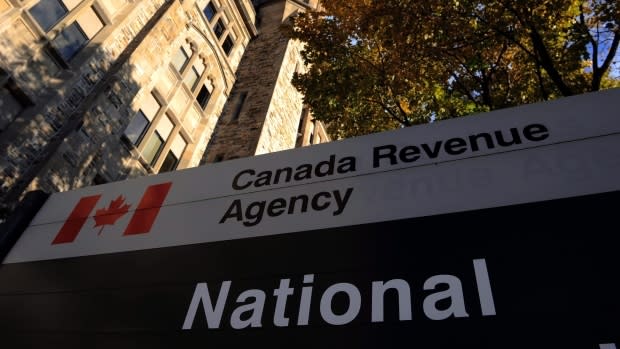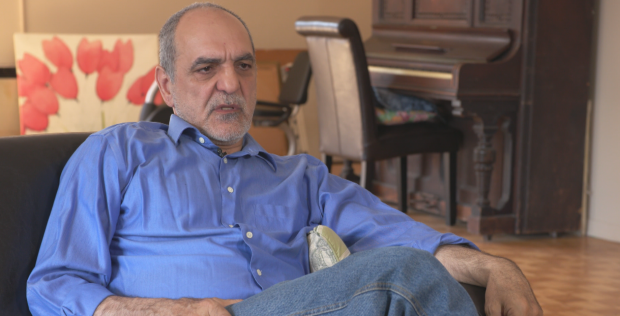Police raid Indian call centres linked to 'CRA phone scam' that have victimized Canadians
Over the past two weeks, Indian police have been bursting into suspected illegal call centres, arresting everyone in sight and seizing troves of equipment used to carry out phone fraud aimed at foreigners. Hundreds of Canadians are among the victims of the so-called "CRA scam," and their combined losses — from just two of the raided offices — are likely to be at least in the hundreds of thousands of dollars.
"This is just the beginning, says Chief Ajay Pal Sharma of the Noida Station. "More illegal call centres are running in the city, which will be busted soon. We will be conducting more raids."
Police say they arrested 28 people in just one of their sweeps, including two seen as the kingpins of the operation. Most are in their twenties.
They are expected to face fraud-related charges, which could result in jail time.
The raids were triggered by a visit from Canadian police to Noida, a suburb of India's capital New Delhi, following a CBC Marketplace investigation that revealed how and where many of the scammers were operating. An RCMP officer based in India, in cooperation with the FBI, approached Indian authorities to act.
It's part of a message the Mounties are trying to send in India.
"We're going to work jointly, collaboratively to take you down," says Supt. Peter Payne, the federal force's top cop on financial crime.

Dozens of scam centres are believed to still be active in multiple cities across India, each with independent managers and using their own technology to evade detection.
Indian security observers also believe at least some of the centres are operating with police approval, in a country where bribery is not an unusual way to circumvent investigative scrutiny.
In just one of the raided facilities, investigators located a spreadsheet containing details on more than 600 Canadian victims of the scheme. RCMP officers in Canada will now begin the task of contacting every one of them to determine how much was stolen from them, and whether there is any prospect of getting the money back.
"We're going to try our best efforts to do it," Payne told CBC News, "but I can't make any guarantees."
Indian police have also paraded those arrested in front of news cameras. They say it's being done in part to show action against an industry that rarely faces prosecution, and also to send a message to the many centres that continue to operate.

How the scam works
The CRA scam, just one of the criminal schemes operated from the centres, typically begins with a robocall claiming to be from the CRA and telling the recipient that they owe taxes. The target is informed that they must call back — or face arrest and imprisonment.
Call spoofing technology is used to make it appear the number is in Canada, and sometimes even originating from a legitimate CRA contact centre.
Those who call back are subjected to further threats, but then offered a one-time chance to pay and settle the matter.
Thousands of Canadians have done exactly that over the past several years, at an estimated cost of more than $10 million, falling prey to the dozens of call centres using the same scheme.
Watch the Marketplace team track down the call centres in India:
The victims are often the most vulnerable — the elderly or immigrants to Canada.
CBC News spoke to a number of them, many of whom reported feeling deeply embarrassed. Most do not want to be identified, for fear of being targeted again.
Gehangir Rashidi, who lost more than $100,000 to scammers, says he welcomes the latest raids and arrests. "This is excellent, it makes me happy. Keep going. Find all of them … I'd like my money back."

That may prove to be challenging.
Victims are asked to hand over money in a variety of ways, including through bitcoin ATMs and gift cards, including those offered by credit card companies and Apple.
Further complicating things, offshore financial intermediaries often process the money to insulate the scammers from scrutiny, generally pocketing about 40 per cent of the total amount, according to Indian police.
Victims feel complaints were ignored
Though the scam itself has existed in India for close to a decade, these sorts of police raids are exceedingly rare. The October arrests mark the first in two years.
Many Canadian victims of the scams told CBC News earlier this year that they felt their complaints were being ignored. Some reported their cases to local police forces, but were told the crime originated overseas and so nothing could be done by Canadian authorities.
Others contacted the Canadian Anti-Fraud Centre, run jointly by the RCMP and other agencies, but many said those complaints were never responded to.

The bulk of the call centres operate in Mumbai, India's largest metropolis. In July, senior Indian police officials there told CBC News they'd never received a request for assistance from the RCMP to intervene against the scam.
The RCMP say they are most certainly in contact now, and expect to continue the co-operation with Indian law enforcement. They also say information is being shared through the secretive Five Eyes inter-government intelligence and surveillance network.
Canada's federal force acknowledges that investigative reports done by CBC News put a spotlight on the issue and contributed to the action being taken.
"It drew more public awareness onto law enforcement and the Government of Canada to do something," Payne says. "We're serious about combating this issue, and public awareness is the only way to do it."
While the RCMP has scored some limited success with the latest raids, the federal force is emphasizing prevention over prosecution. In other words, they want Canadians to know what the scam sounds like so they can avoid becoming a victim.
"It's more of an education awareness thing," Payne says. "These scammers are not going to stop."
Watch David Common's story on the CRA-scam raids in India from The National:

